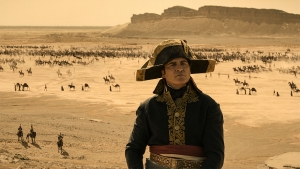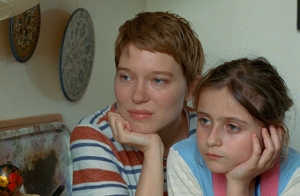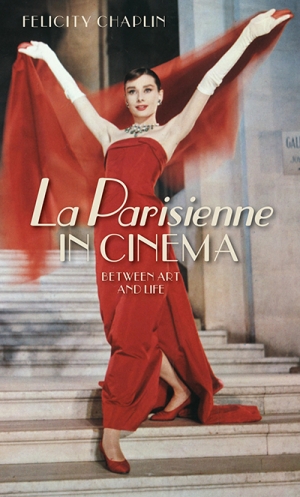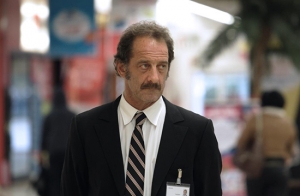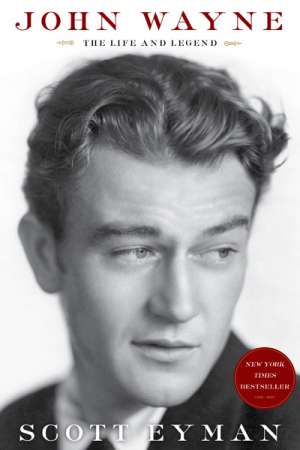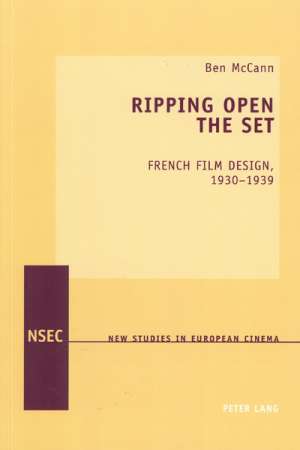Philippa Hawker
'Napoleon: An unconvincing biopic from Ridley Scott' by Philippa Hawker
Ridley Scott’s Napoleon Bonaparte is petulant, over-confident. He likes to make animal noises and is often ill at ease. He is deeply infatuated with his wife. He can fall asleep at crucial moments. His ambitions are boundless, his limitations often comical. He’s very into cannons. He combines the extraordinary and the extremely ordinary in disconcerting ways.
... (read more)In French filmmaker Mia Hansen-Løve’s One Fine Morning (Un beau matin), books play a significant role: as physical objects, gifts, talismans, sources of connection, works in progress. Above all, books can represent a life.
... (read more)2018 Australian Book Review Film Survey
Friday, 25 May 2018We invited some writers, film critics, and film professionals to nominate their favourite film – not The Greatest Film Ever Sold, but one that matters to them personally.
... (read more)Philippa Hawker reviews '"La Parisienne" in Cinema: Between art and life' by Felicity Chaplin
On the cover of Felicity Chaplin’s La Parisienne in Cinema: Between art and life, Audrey Hepburn, arms aloft, reigns triumphant in a strapless scarlet evening gown and organza shawl. This is a scene from Funny Face (1957), in which she plays a shy Greenwich Village bookshop employee transformed into a high-profile ...
... (read more)To highlight Australian Book Review’s arts coverage and to celebrate some of the year’s memorable concerts, operas, films, ballets, plays, and art exhibitions, we invited a group of critics and arts professionals to nominate some favourites.
... (read more)Philippa Hawker reviews 'Movie Journal: The rise of new American cinema 1959–1971' by Jonas Mekas
'Do you really want me to fall that low, to become a film critic, one of those people who write reviews?' asks Jonas Mekas, responding with typical brio to complaints ...
... (read more)French writer-director Stéphane Brizé's The Measure of a Man (La loi du marché), looks at first to be a character study with a quasi-documentary feel, then takes a disconcerting turn. At its centre is Vincent Lindon (Welcome [2009], Mademoiselle Chambon [2009]), a robust, often demonstrative actor ...
... (read more)‘I’m Duke Morrison, and I never was and never will be a film personality like John Wayne. I know him well. I’m one of his closest students. I have to be. I make a living out of him.’ In Scott Eyman’s biography John Wayne: The Life and Legend, these words, uttered by ‘Duke Morrison, aka John Wayne’, serve as an epigraph. They are a curious mixtur ...
Ben McCann’s Ripping Open the Set begins with four epigraphs, observations of various kinds. They come from American figures – Frank Capra, Douglas Fairbanks, Mary Pickford, and Nathanael West – and they express a range of notions, none of them particularly positive, about the place of design in cinema. McCann – senior lecturer in French at the University of Adelaide – then starts his introduction with another American voice: producer David O. Selznick sends a memo to his design colleagues during pre-production for Gone with the Wind (1939). This time, however, the observation has a different tone. Selznick canvasses, with some concern, the widespread belief that French films have ‘a quality of reality in photography, sets, and costumes’ that American movies lack. American films seem constructed – French sets looked lived-in.
... (read more)Don DeLillo’s 2003 novel Cosmopolis could be described as a rarefied CBD road movie, and the same might be said of David Cronenberg’s new film adaptation, an unnervingly faithful, uncomfortable, and elusive version of the book. Cronenberg, a consistently absorbing and provocative director, is still probably best known for early, visceral works such as Videodrome (1983) and The Brood (1979). His biggest hit is a remake of The Fly (1986). He has made some fine literary adaptations: an elegant, disturbing engagement with J.G. Ballard’s Crash (1973); an intelligently claustrophobic take on Patrick McGrath’s Spider (1990). His version of William Burroughs’s Naked Lunch (1959) is odd, flawed, and inventive. He has not made a film from an original screenplay since eXistenZ in 1999.
... (read more)
